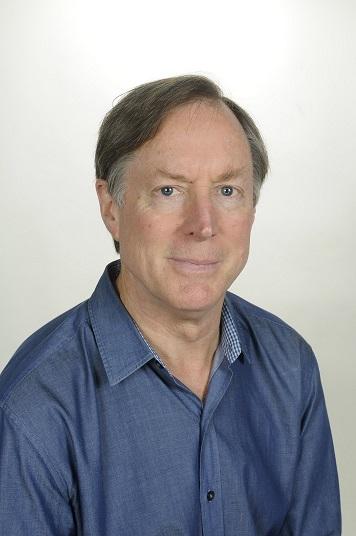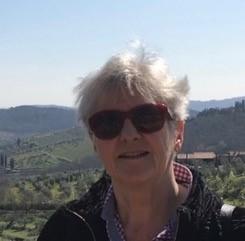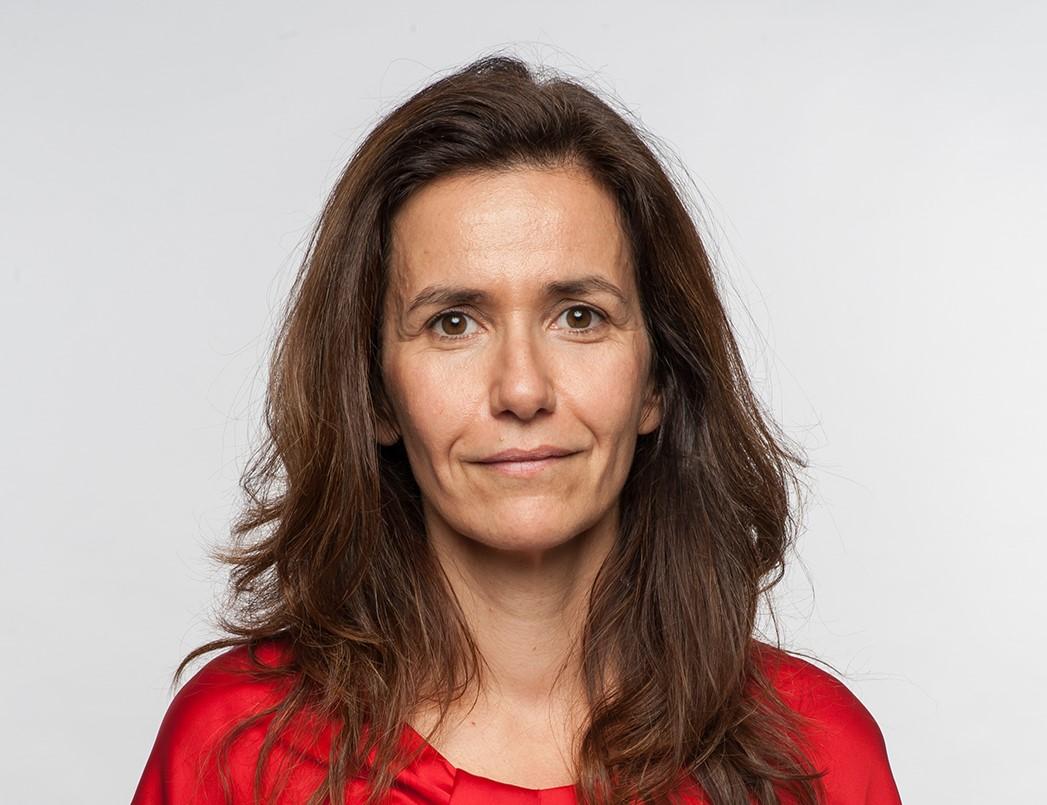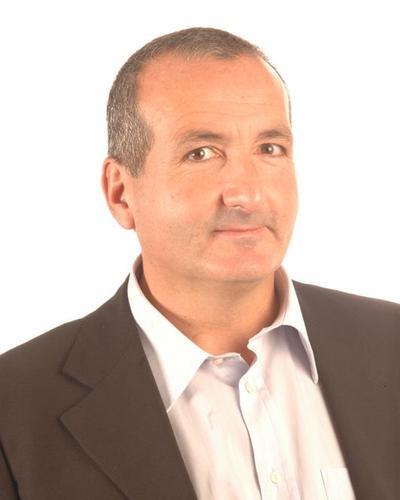Ethics of quantification
In 2019, Ethics of quantification was the theme for the Centre for the Study of the Sciences and the Humanities (SVT)'s annual symposium.

Main content
This year, the theme is ‘Ethics of Quantification’. The intermeshing of algorithms and big data increasingly blurs many existing distinctions between different forms of quantification and is gaining prominence in the nascent field of the sociology of quantification. As Elizabeth Popp Berman and Daniel Hirschman enquire: “What qualities are specific to rankings, or indicators, or models, or algorithms?” In recent times, examples of quantification have come under intense scrutiny with regard to perceived misuse or abuse of existing methodologies. Algorithms pose the risk of non-transparent, oft-proprietary tools being used to decide upon everything from convicting felons to conceding mortgages, and from recruitment to adoption. Quantification as a policy support tool is also found wanting. The convulsions of significance testing in statistics have received wide attention in both media and academia. Mathematical modelling is a field where severe problems are not yet fully charted. Common to many forms of quantification is a singular conundrum: any number which does not represent its context and purpose of production can obfuscate as much as it can illuminate. Is time ripe for an ethics of quantification?
The symposium on 6th of December 2019 will feature keynotes by prominent scholars of Science and Technology Studies, the politics of metrics, and the ethics, fungibility and policy relevance of quantification. We are delighted to welcome professor in History of Science, Theodore Porter,UCLA, Professor emerita Catherine Paradeise, Université Paris-Est, Ana Viseu, Associate Professor at Universidade Europeia together with SVTs Andrea Saltelli as our distinguished keynote speakers.
The closing round table of the symposium will be introduced and chaired by SVTs Jeroen van der Sluijs.
Mimi Lam and Kjetil Rommetveit from SVT working on quantification and cognate themes are chairing sessions of a research workshop anchored by Siddharth Sareen and Andrea Saltelli on the same theme, which will be held a day prior to the symposium, December 5th – please see the call for papers.
Programme
6 December 2019
09.00 Coffee
09.30 Welcome by Pro-rector Margareth Hagen and Introduction by Director at SVT Rasmus Slaatelid.
10.00 Theodore Porter, UCLA:
The Dubious Economy of Data-Driven Management
10.45 Q&A, Chair: Rasmus Slaatlied.
11.00 Ana Viseu, Universidade Europeia:
Recovering Difference as a Site of Intervention: The case of wearable computers
11.45 Q&A Chair: Anne Bremer
12.00 Lunch
12.45 Andrea Saltelli, University of Bergen:
Ethics of quantification or quantification of ethics?
13.30 Q&A Chair: Anne Bremer
13.45 Catherine Paradeise, The Eastern Paris Federal University:
Quantifying has become a business. The issues of metrics in higher education
14.30 Q&A Chair: Silje Langvatn
14.45 Coffee
15.00 Panel based on research workshop Session I: AI and big data, Chair: Kjetil Rommetveit, University of Bergen
15:45 Panel based on workshop session II: Governing subjects through numbers, Chair: Mimi Lam, University of Bergen
16.30 Plenary discussion and conclusions, Chair: Jeroen van der Sluijs, University of Bergen
17:30 End
19.00 SVT and Speakers dinner
Key note bios
Theodore Porter is a Distinguished Professor of History & Vice Chair for Academic Personnel at UCLA History. Most of his work has involved in some way the uses of statistics, calculation, numbers, measures, and data. He has a life long interest in diverse sites of knowledge-making--not just universities and academics, but mining boards, statistical agencies (notably census offices), engineering corps, and mental hospitals. Porter is a well reknown lecturer and speaker.
Chosen publications: Genetics in the Madhouse: The Unknown History of Human Heredity (2018), Princeton, NJ, US: Princeton University Press. “Thin Description: Surface and Depth in Science and Science Studies,” Robert Kohler and Kathryn Olesko, eds., Clio Meets Science: The Challenge of History, Osiris, 27 (2012), 209-226.“Funny Numbers,” Culture Unbound (online journal), 4 (2012), 585-598.“Reforming Vision: The Engineer Le Play Learns to Observe Society Sagely,” in Lorraine Daston and Elizabeth Lunbeck, eds., Histories of Scientific Observation (Chicago: University of Chicago Press, 2011), 281-302“How Science Became Technical,” Isis, 100 (2009), 292-309.
Catherine Paradeise is a Professor emeritas in sociology at Université Paris-Est Marne-la-Vallée | UPEMLV· During two decades, she studied how professions and industrial relations build the economic and economic and social worth of professionals in various sectors and statuses. Since 2004, she analyzes the changing regimes of worth in higher education. She is also working on the issue of commitment and social innovation.
Latest books: in Search of Academic Quality, with Jean-Claude Thoenig, Palgrave-Macmillan (also available in Spanish), 2015; The University under Pressure, Emerald, co-ed. with Elizabeth Popp-Berman, 2016; Elite Universities and the Production of Academic Elites. Discourses, Policies and Strategies of Excellence and Prestige in Higher Education, Palgrave-MacMillan, co-ed. with Roland Bloch, Alexander Mitterle and Tobias Peter, 2017; Marketing democracy, with R. Laufer, Transaction Publishers, New Jersey, 2016 (1st ed. in French 1982, in Spanish 1988, in English 1990).
Ana Viseu is currently Associate Professor at Universidade Europeia and a member of the Centro Interuniversitário de História das Ciências e Tecnologia, Faculdade de Ciências, Universidade de Lisboa. Anchoring her thinking in cultural studies of technoscience, feminist technoscience and 'science and technology studies,' she specializes in ethnographic studies of technoscientific innovation. Ana Viseu is presently involved with:
(1) The critical examination of technosciences that posit the body as the interface between biology and information, examining these issues in the field of wearable computers, and in ethnography of the 'Quantifed Self' movement.
(2) The study of the politics and policies of contemporary technoscience governance. In particular, she is interested in examining how science is governed, regulated and financed, in the name of creating "better and responsible science."
Andrea Saltelli has worked on physical chemistry, environmental sciences, applied statistics, impact assessment and science for policy. His main disciplinary focus is on sensitivity analysis of model output, a discipline where statistical tools are used to interpret the output from mathematical or computational models, and on sensitivity auditing, an extension of sensitivity analysis to the entire evidence-generating process in a policy context.
He worked at the European Commission, at the Joint Research Centre where he led for ten years the unit of econometrics and applied statistics, and is presently adjunct professor at the Centre for the Study of the Sciences and the Humanities (SVT) - University of Bergen (UIB), and visiting fellow at Open Evidence Research, Open University of Catalonia.
His most recent papers have tackled sensitivity analysis and auditing, the ecological footprint, the future of statistics, the rational of evidence-based policy, the crisis of science and the post-truth discussion. Andrea gives courses in sensitivity analysis, sensitivity auditing and ethics of quantification, and together with colleagues, develops a syllabus on Numbers for Policy (see www.andreasaltelli.eu).
Research workshop ahead of the symposium
We organized a research workshop for young researchers on 5 December 2019.
Schedule:
08:30-10:30 – Discussion of manuscripts 1A-1D
10:30-11:00 – Coffee break
11:00-13:00 – Discussion of manuscripts 1E-1G
13:00-14:00 – Lunch (for presenters)
14:00-16:00 – Discussion of manuscripts 2A-2D
16:00-16:30 – Coffee break
16:30-18:30 – Discussion of manuscripts 2E-2G
18:30-19:30 – A visit to the Christmas market (voluntary)
19:30-22:30 – Group dinner (self-paid) based on RSVP
The research workshop will be open to the public.
Participants are expected to stay through Friday 6th December 2019. They will be part of the annual SVT symposium on 6th December 2019, which will feature two 45-minute panel discussions about the thematic sessions.
Workshop and associated call for papers
Call for papers for a special issue in Palgrave Communications on Ethics of Quantification: Big Data and Governing through Numbers.
Prospective authors should submit a 200 word abstract and a short biography to the Collection Editors in the first instance. Authors whose proposals are deemed suitable will be invited to submit full manuscripts by 31st January 2020.
On the theme and the workshop
The intermeshing of algorithms and big data increasingly blurs distinctions between different forms of quantification. As Berman and Hirschman (2018) enquire: “What qualities are specific to rankings, or indicators, or models, or algorithms?” Quantification has recently come under intense scrutiny for perceived misuse of existing methodologies. Algorithms pose the risk of non-transparent, oft-proprietary tools used in decision-making and for policy support. The convulsions of significance testing in statistics have received wide attention. Mathematical modelling is a field with severe uncharted problems. Much quantification carries the conundrum that, without representing context and purpose of production, numbers can obfuscate as much as illuminate. Yet measurements generate traction for issues, hence acting within society often requires an appreciation of and entanglement with data politics (Bigo, Isin and Ruppert 2019). Is time ripe for an ethics of quantification?
As Dencik et al. (2019) point out, the way data and society act upon each other is changing the meaning of justice, specifically data justice for society. France’s Stat-Activisme movement aims to ‘fight against’ and ‘fight with’ numbers, using ‘statistical judo’, exposing the vacuity of existing metrics, and statistically identifying exclusion and neglect (Bruno et al., 2014). Markham, Tiidenberg and Herman (2018) warn that a grand narrative around data analytics accords truth value to knowledge based on objectivity claims and sheer volume, obscuring processual human decisions. They forge ways to work with the awareness that societal interventions based on assumptions about big data constitute an accountability crisis, as algorithmic governance becomes ubiquitous. Hesse et al. (2019) think through the continuing relevance of qualitative data. They advocate for methodological diversity, contextualised and inclusive research, nuanced discussion of ethical dilemmas that transcend legality, translocal and transdisciplinary conversations, and responsible research and data infrastructures.
To deepen examination of the issues flagged by these path-breaking forays, the workshop features thematic sections on (1) artificial intelligence (AI) and big data, and (2) governing subjects through numbers.
AI and big data
Discussants: Theodore Porter (University of California Los Angeles), Ana Viseu (Universidade Europeia and University of Lisbon)
Session chair: Kjetil Rommetveit
The eight manuscripts in this session focus on ethical concerns implicated in the act of quantification itself. They reflect on the ethics of algorithms and feature ontological emphases. The session is centred around the following three questions:
How pervasive are AI and big data in 21st century life: in advertisements, news feeds, information access, personal search histories, social media cookies and cloud-based personal data repositories?
How does AI impact one’s cognitive capacity and privacy, what is lost and what is gained?
How does AI differ from people’s tendency to prioritise and privilege ‘similar others’, and what implications does this hold for standards and regulations around the expanding use of AI and big data?
Contributions include:
1A. How to assign weights to values? Some challenges in justifying artificial explicit ethical agents – Silviya Serafimova
1B. Quantified visual surveillance: Reading power and ethics through fictional cases – Jill Walker Rettberg
1C. Ethical aspects of machine learning and artificial intelligence (tentative title) – Samuele Lo Piano
1D. S&T indicators in the wild: Contextualization and participation for responsible metrics – Ismael Ràfols
1E. Why Big Data is a dead end – Ragnar Fjelland
1F. Smart ‘meeters’: Democratising the dehumanisation moment of post-automation energy systems – Siddharth Sareen
1G. Building trust in artificial intelligence through ethics? A critical look into EU institutional ethics –Raphael Gellert and Kjetil Rommetveit
Governing subjects through numbers
Discussants: Catherine Paradeise (Université Paris-Est Marne-la-Vallée), Andrea Saltelli (University of Bergen)
Session chair: Mimi Lam
The eight manuscripts in this session are concerned with sociological aspects of the ethics of quantification. They emphasise how various acts of quantification interact with situated subjects. The session is built around these three questions:
What is measured and quantified about the body as a subject and about related subjects – e.g., consumption, metrical performance, environmental interaction, death – and why?
How does measurement relate with subjecthood? What does quantification do to subjects?
What cross-sectoral challenges does measurement draw attention to, and how does it impact public understandings and the evolution of specific societal domains? What forms of resistance are possible?
Abstracts include:
2A. The three-star public: Ratings apps and the quantification of self and other – Elizabeth Chatterjee and Thomas Hodgson
2B. Quantification as sociotechnical imaginary: European drug policy, liberal biopolitics and the measurement of harm – Adam Standring
2C. Quantification as intervention in grassroots activism (tentative title) – Gerald Aiken
2D. The ethics of maternal and child death quantification in Ethiopia: A study of the Maternal and Perinatal Death Surveillance and Response System – Andrea Melberg
2E. ‘Ending AIDS’ through metrics: Measuring nations and measuring lives, and the role of quantification for both – Tony Sandset
2G. Quantifying research quality – Mimi Lam
To link the two thematic sessions, Siddharth Sareen will anchor the workshop. Selected abstracts will be part of an edited collection, based on a proposal submitted to a leading publisher in advance of the workshop. Full draft manuscripts are due by 10th November 2019 to enable pre-circulation among the workshop participants. We envisage revised manuscript submission for peer review in late January 2020 (editors Siddharth Sareen, Andrea Saltelli and Kjetil Rommetveit).
References
Berman, E. P. and Hirschman, D. 2018. The sociology of quantification: Where are we now? Contemporary Sociology: A Journal of Reviews 47 (3): 257-266.
Bruno, I., Didier, E. and Prévieux, J. 2014. Stat-Activisme. Comment Lutter Avec Des Nombres. Paris: Zones, La Découverte.
Bigo, D., Isin, E. and Ruppert, E. 2019. Data Politics: Worlds, Subjects, Rights. London: Routledge.
Markham, A.N., Tiidenberg, K. and Herman, A. 2018. Ethics as methods: Doing ethics in the era of big data research – Introduction. Social Media+ Society 4 (3): 2056305118784502.
Hesse, A., Glenna, L., Hinrichs, C., Chiles, R. and Sachs, C. 2019. Qualitative research ethics in the big data era. American Behavioral Scientist 63 (5): 560-583.
Dencik, L., Hintz, A., Redden, J. and Treré, E. 2019. Exploring Data Justice: Conceptions, Applications and Directions. Information, Communication & Society 22 (7): 873-881.



